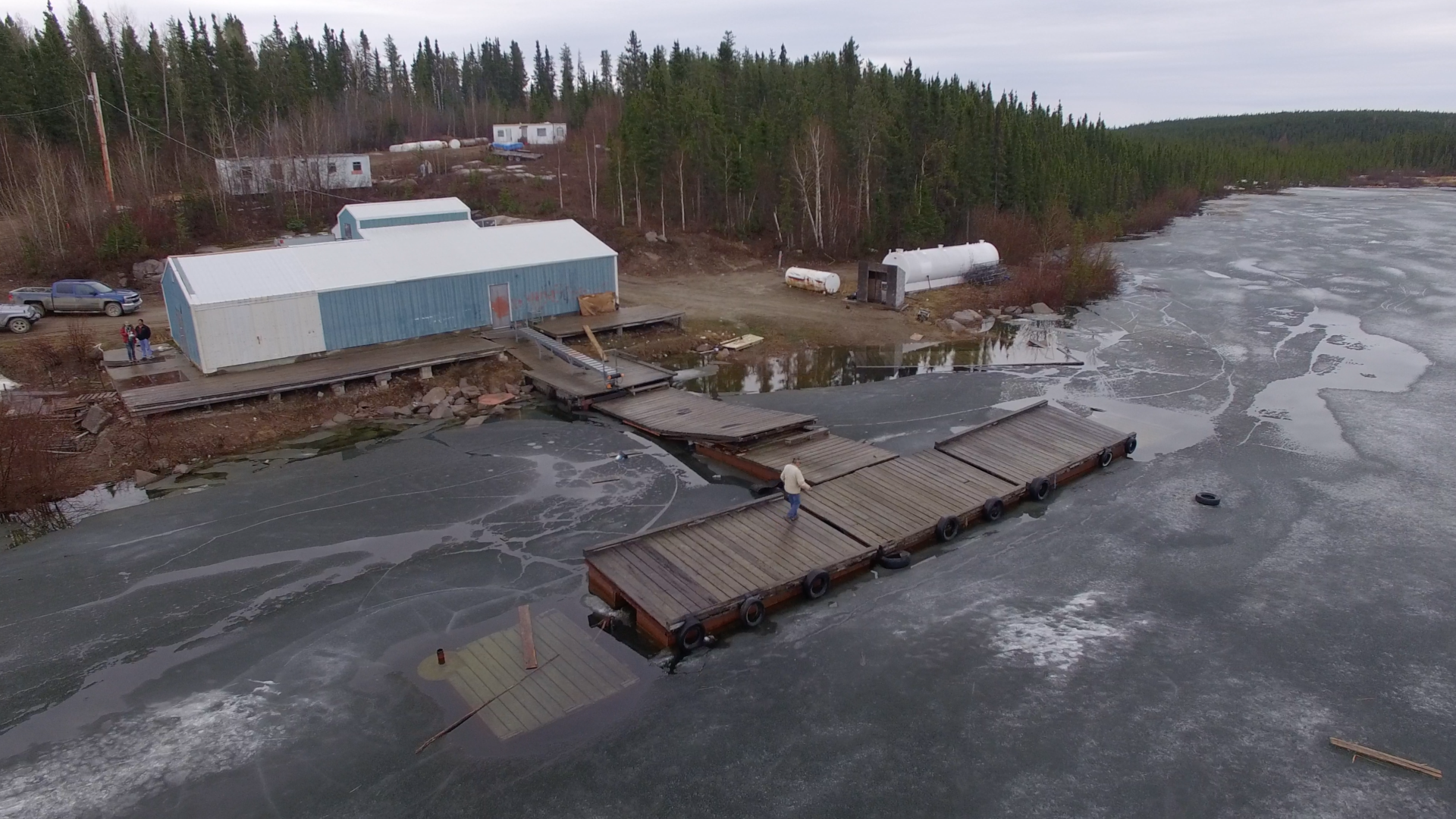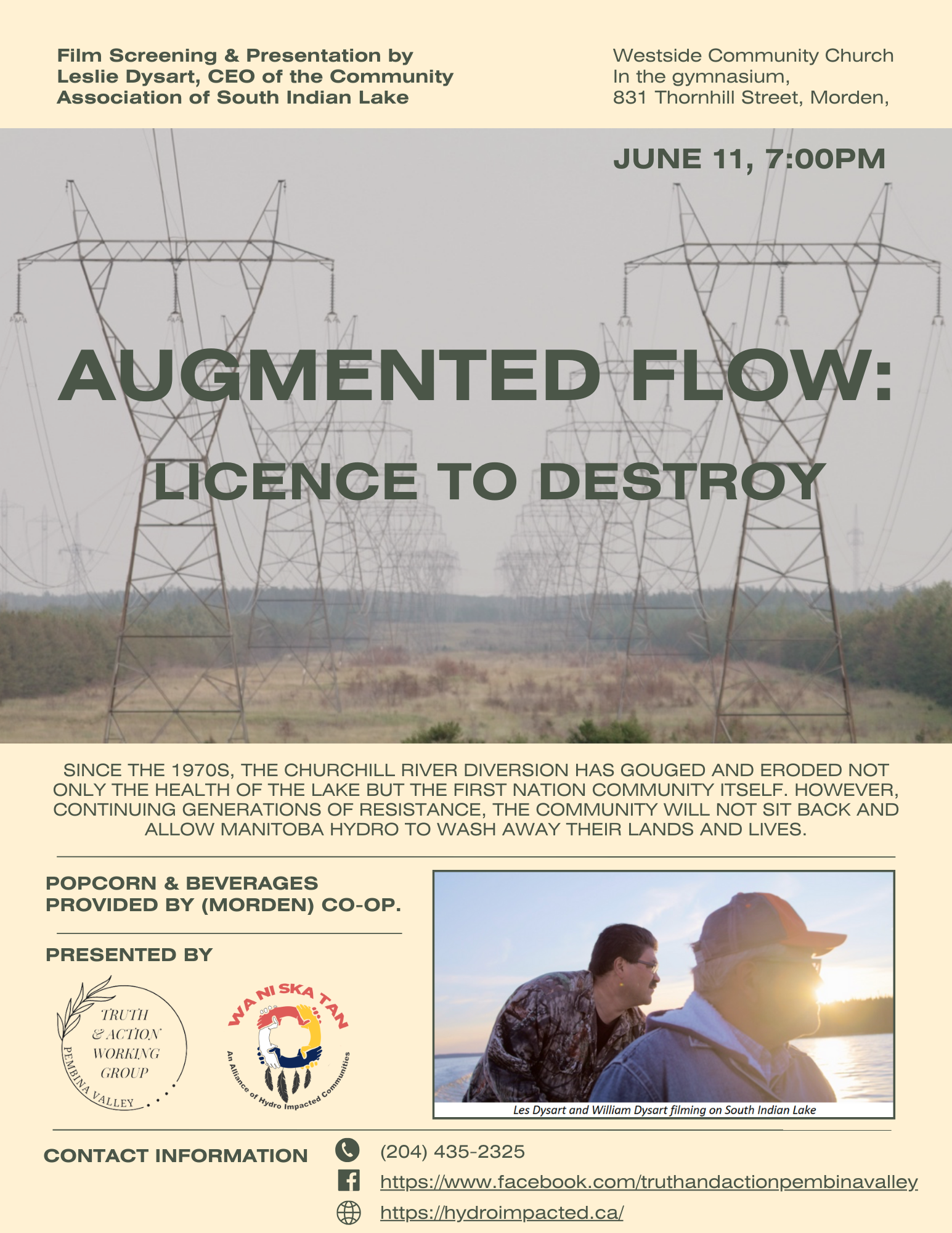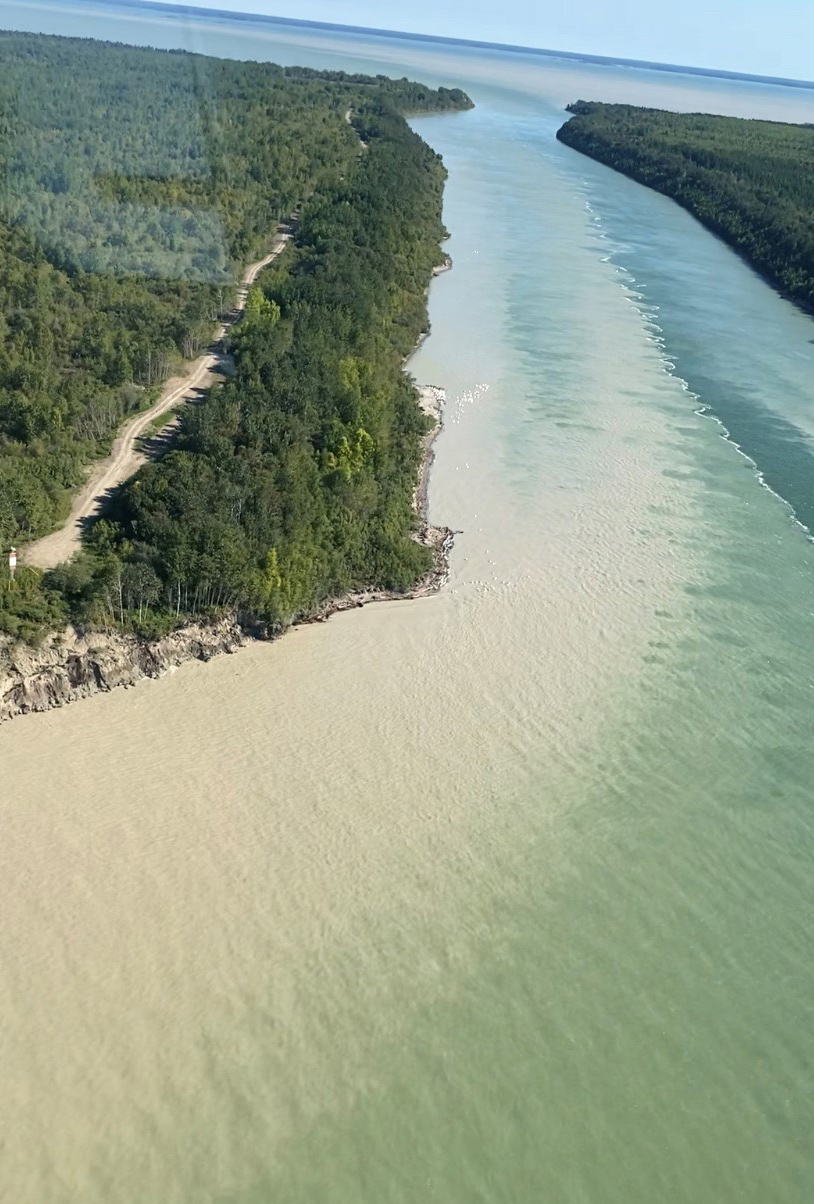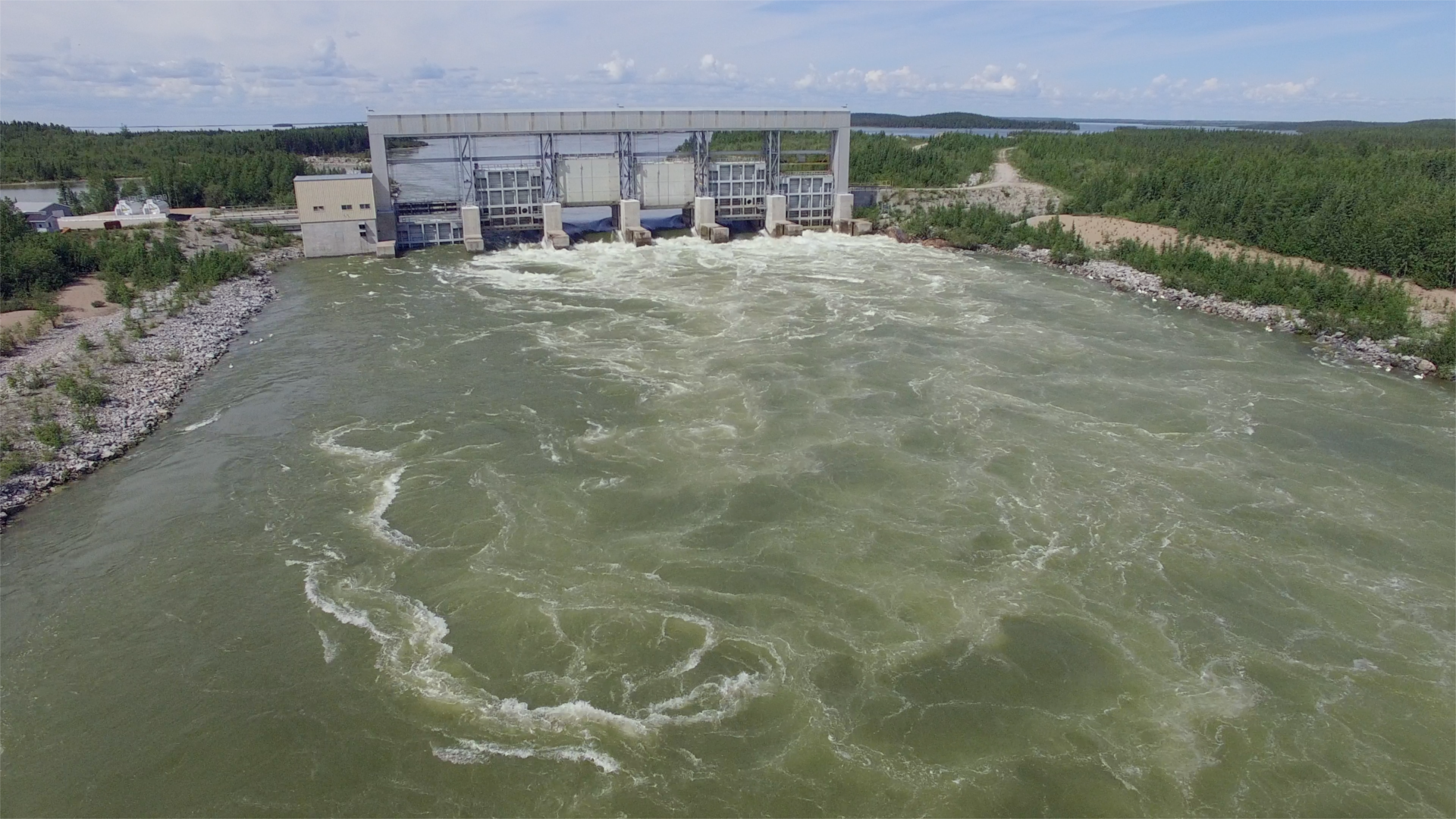After enduring nearly 50 years of harm arising from a massive hydropower project constructed against their wishes, O-Pipon-Na-Piwin Cree Nation (OPCN), along with two related community associations, filed a statement of claim in Manitoba Court of King’s Bench on May 19, 2023.

For more information about their legal claim click here
For more information about the CRD click here
 .
.

 Augmented Flow: Licence to Destroy Film Screening & Presentation by Leslie Dysart, CEO of the Community Association of South Indian Lake
Augmented Flow: Licence to Destroy Film Screening & Presentation by Leslie Dysart, CEO of the Community Association of South Indian Lake
For this community whose lifeblood is the Lake, Manitoba Hydro’s relentless pursuit for power has gouged and eroded not only the health of the lake but the First Nation community itself. Since the 1970s the First Nation has been fighting Manitoba Hydro and the Province of Manitoba who perpetrate this destructive and unnecessary water level control in their territory. Now the Province of Manitoba has signed a licence agreement that gambles with the lives and future of the South Indian Lake community. Continuing generations of resistance, the community will not sit back and allow Manitoba Hydro to wash away their lands and lives. Augmented Flow has been developed by the community of South Indian Lake and features Elders, knowledge keepers, and other community members sharing their perspectives on hydro and its impact on their lives and lands.
The film was produced by Leslie Dysart, Directed by Marcel Kreutzer, Written and Narrated by Leslie Dysart Edited by Erika MacPherson & Marcel Kreutzer ©2021
Watch the film now:

Norway House Cree Nation has been experiencing unprecedented erosion along 2-Mile and 8-Mile channels that were constructed by Manitoba Hydro in the 1970s as part of the Lake Winnipeg Regulation Project.
The nation was met with silence throughout 2022 when reaching out to Manitoba Hydro and the Province for assistance in dealing with this crisis. They are only now coming to the table to start a conversation after more than six months of stalling.
Manitoba Hydro needs to take responsibility for the erosion problem at 2 Mile Channel and come up with an engineered solution in real time to prevent future damage.

For more information about the impacts of hydro-related erosion on Norway House Cree Nation, please click here
![]() Join us in writing to the our political representatives and ManitobaHydro executives to voice your concern and to recommend that immediate action be taken.
Join us in writing to the our political representatives and ManitobaHydro executives to voice your concern and to recommend that immediate action be taken.

In Canada, polluting industries, resource extraction, and other environmental threats are disproportionally situated in and around Indigenous and racialized communities. This reality is not an unintended consequence of development or resource extraction, instead, these are deliberate decisions that in many cases reflect the creation of “sacrifice zones” that are largely out of sight and out of mind from the general public.
Bill C-226 will require the government to develop a national strategy to advance environmental justice and to assess, prevent and address environmental racism. This includes examining the links between race, socioeconomic status and environmental risks.
Bill C-226 passed its third reading in the Senate and now waits for royal assent before it becomes legislation!
Thanks to all who signed the petition!


Learn more about Bill C-226:
Learn more about Environmental Racism: